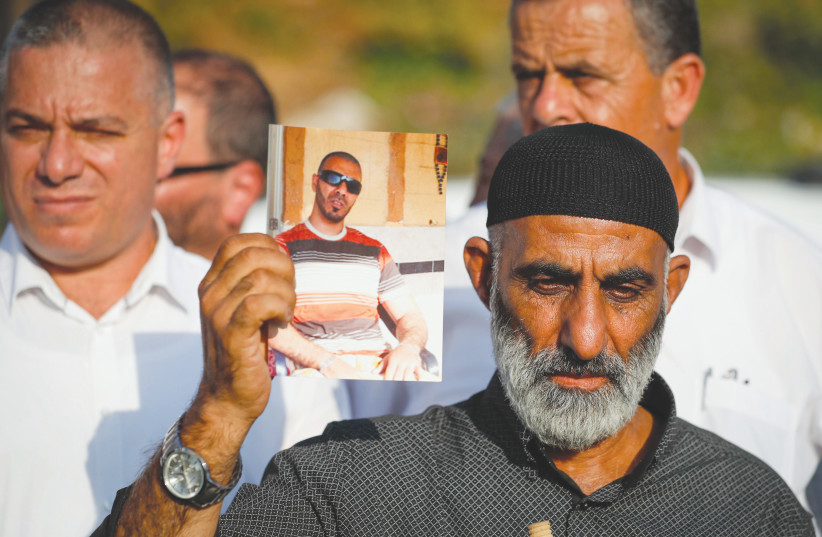A survey conducted IDSF/Habithonistim — Israel's Defense & Security Forum, asked Jewish and Arab Israelis their thoughts on Israel’s current security situation, as well as opinions on long-standing issues within the greater Israeli-Arab conflict.
The survey found that 61% of all Israeli citizens are generally fearful of the current security situation in Israel — especially amid the wave of terror attacks in 2022 thus far. While 69% of Jewish Israelis said the situation was frightening to them personally, only 43% of Arab Israelis shared this sentiment.
Further, roughly 47% of all Israeli citizens said they feel the security presence was lacking, though more Israeli Arabs believed this to be the case — 71% — compared to just 44% within the Jewish sector.
While disagreements remain, Jewish and Arab Israelis both share a distrust for law enforcement — 66% of all citizens of Israel do not trust the police, with the lack of trust among Israeli Arabs standing at 73%.
Contrary to the Police, Israel’s National Guard is seen in a positive light, with support from 66% of the general public, including 44% of Israeli Arabs. 37% of Israeli Arabs even said they would serve in the national guard for the purpose of providing aid in disaster situations or restoring public order, compared to 54% of Jewish Israelis.

70% of Jewish respondents claim that Jewish violence against Arabs receives more media coverage than Arab violence against Jews — a sentiment that, surprisingly, 33% of Arab respondents agreed with.
While Jewish and Arab Israelis do share agreements, major points of contention remain. When asked of the Jewish People's sovereign right to live in the Land of Israel, merely 25% of Israel's Arabs responded that the Jewish People have a right of sovereignty to the Land of Israel, with a significant majority of about 75% believing that there is no justification of the Jewish People's right to sovereignty over the Land of Israel.
When asked about a theoretical war between Israel and an Arab country, 51% of Arab respondents said they would not participate in either side. About 23% of the respondents emphasized that they would support the attacking countries, compared with 26% who said they would support the State of Israel.
"These days… we confront a worrisome reality — A lack of governance in the Negev, a divided public, a lack of a sense of security, an impending (Iranian) nuclear agreement and Hamas dispatching terrorist attacks from Judea and Samaria,” said Brigadier General (res.) Amir Avivi, the Director-General of IDSF/HaBithonistim.
“These challenges require us to mobilize as security experts and understand the reality in order to act together as officers and security experts to reflect the worrisome reality and to take steps for a widespread mobilization."
